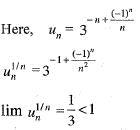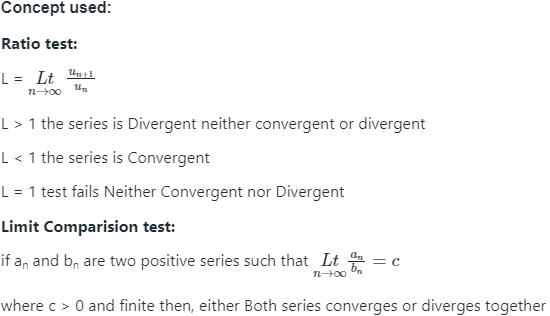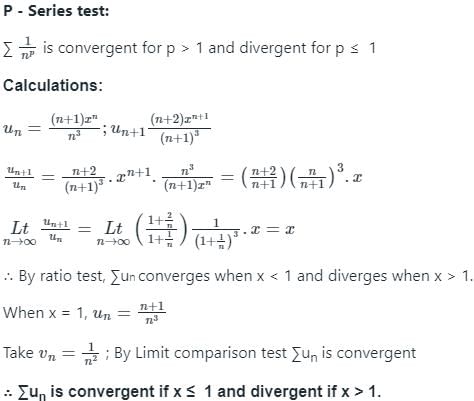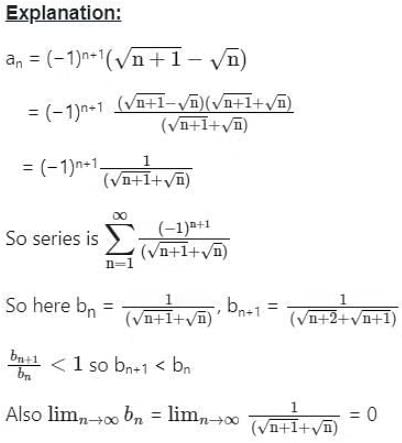IIT JAM Exam > IIT JAM Tests > Sequences And Series Of Real Numbers -1 - IIT JAM MCQ
Sequences And Series Of Real Numbers -1 - IIT JAM MCQ
Test Description
20 Questions MCQ Test - Sequences And Series Of Real Numbers -1
Sequences And Series Of Real Numbers -1 for IIT JAM 2025 is part of IIT JAM preparation. The Sequences And Series Of Real Numbers -1 questions and answers have been prepared
according to the IIT JAM exam syllabus.The Sequences And Series Of Real Numbers -1 MCQs are made for IIT JAM 2025 Exam.
Find important definitions, questions, notes, meanings, examples, exercises, MCQs and online tests for Sequences And Series Of Real Numbers -1 below.
Solutions of Sequences And Series Of Real Numbers -1 questions in English are available as part of our course for IIT JAM & Sequences And Series Of Real Numbers -1 solutions in
Hindi for IIT JAM course.
Download more important topics, notes, lectures and mock test series for IIT JAM Exam by signing up for free. Attempt Sequences And Series Of Real Numbers -1 | 20 questions in 60 minutes | Mock test for IIT JAM preparation | Free important questions MCQ to study for IIT JAM Exam | Download free PDF with solutions
Detailed Solution for Sequences And Series Of Real Numbers -1 - Question 1
Detailed Solution for Sequences And Series Of Real Numbers -1 - Question 2
Detailed Solution for Sequences And Series Of Real Numbers -1 - Question 3
Detailed Solution for Sequences And Series Of Real Numbers -1 - Question 4
Sequences And Series Of Real Numbers -1 - Question 5
For the sequence 1, 7, 25, 79, 241, 727 … simple formula for {an} is ____________
Detailed Solution for Sequences And Series Of Real Numbers -1 - Question 5
Detailed Solution for Sequences And Series Of Real Numbers -1 - Question 6
Detailed Solution for Sequences And Series Of Real Numbers -1 - Question 7
Detailed Solution for Sequences And Series Of Real Numbers -1 - Question 8
Sequences And Series Of Real Numbers -1 - Question 9
Match list I with list II and select the correct answer
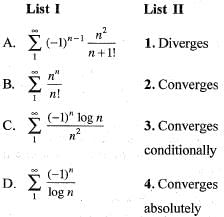

Detailed Solution for Sequences And Series Of Real Numbers -1 - Question 9
Detailed Solution for Sequences And Series Of Real Numbers -1 - Question 10
Detailed Solution for Sequences And Series Of Real Numbers -1 - Question 11
Sequences And Series Of Real Numbers -1 - Question 12
Determine the limits of the following sequences (xn) whose nth term xn is given below.

Detailed Solution for Sequences And Series Of Real Numbers -1 - Question 12
Detailed Solution for Sequences And Series Of Real Numbers -1 - Question 13
Detailed Solution for Sequences And Series Of Real Numbers -1 - Question 14
Detailed Solution for Sequences And Series Of Real Numbers -1 - Question 15
Sequences And Series Of Real Numbers -1 - Question 16
The sequence {Sn} of real numbers given by Sn = is
Detailed Solution for Sequences And Series Of Real Numbers -1 - Question 16
Detailed Solution for Sequences And Series Of Real Numbers -1 - Question 17
Detailed Solution for Sequences And Series Of Real Numbers -1 - Question 18
Detailed Solution for Sequences And Series Of Real Numbers -1 - Question 19
Detailed Solution for Sequences And Series Of Real Numbers -1 - Question 20
Information about Sequences And Series Of Real Numbers -1 Page
In this test you can find the Exam questions for Sequences And Series Of Real Numbers -1 solved & explained in the simplest way possible.
Besides giving Questions and answers for Sequences And Series Of Real Numbers -1, EduRev gives you an ample number of Online tests for practice
Download as PDF




 is convergent, if
is convergent, if
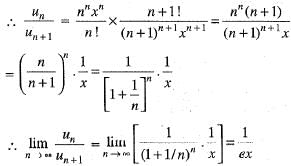




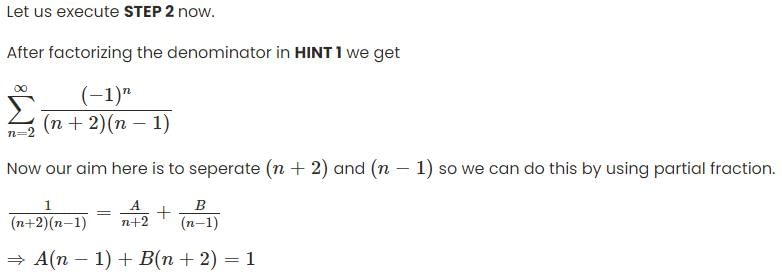
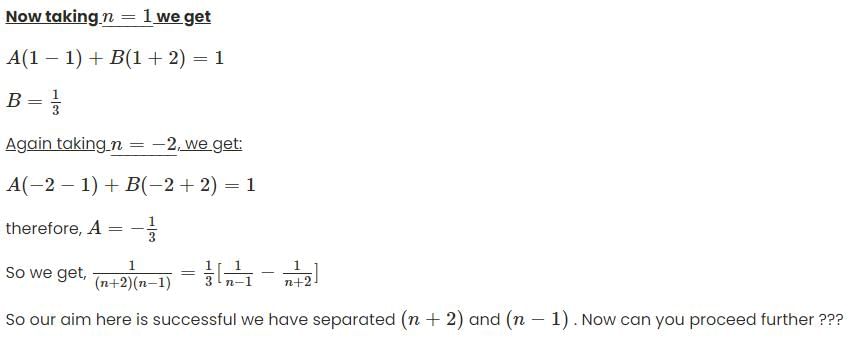
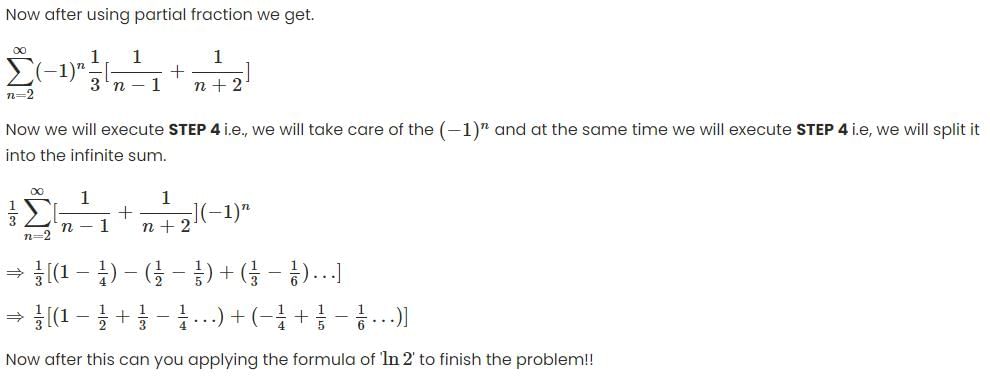
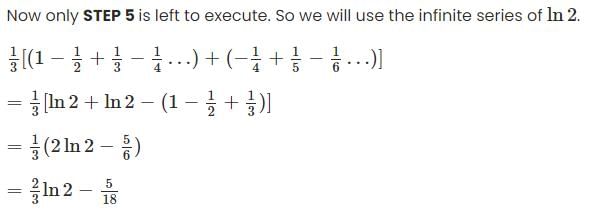


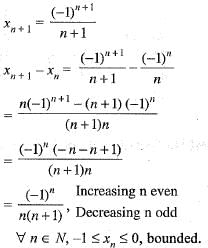
 is
is


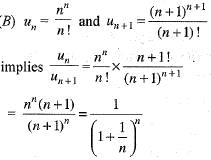




 is divergent series.
is divergent series. 
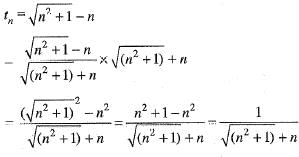


 convergent, if
convergent, if is convergent
is convergent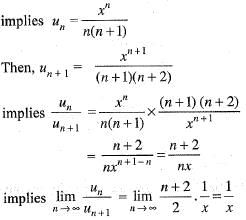








 is
is